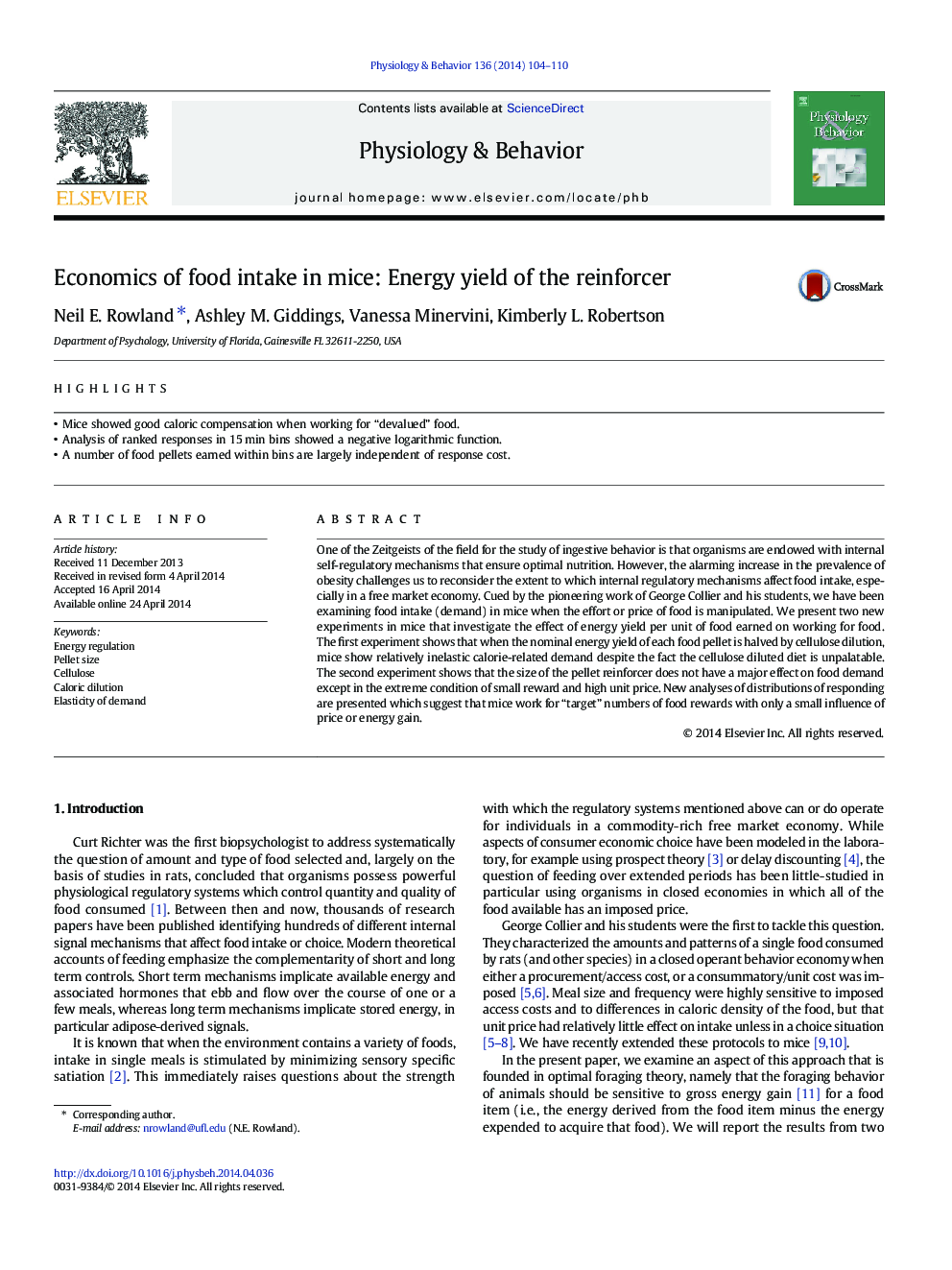| کد مقاله | کد نشریه | سال انتشار | مقاله انگلیسی | نسخه تمام متن |
|---|---|---|---|---|
| 2844145 | 1571181 | 2014 | 7 صفحه PDF | دانلود رایگان |
• Mice showed good caloric compensation when working for “devalued” food.
• Analysis of ranked responses in 15 min bins showed a negative logarithmic function.
• A number of food pellets earned within bins are largely independent of response cost.
One of the Zeitgeists of the field for the study of ingestive behavior is that organisms are endowed with internal self-regulatory mechanisms that ensure optimal nutrition. However, the alarming increase in the prevalence of obesity challenges us to reconsider the extent to which internal regulatory mechanisms affect food intake, especially in a free market economy. Cued by the pioneering work of George Collier and his students, we have been examining food intake (demand) in mice when the effort or price of food is manipulated. We present two new experiments in mice that investigate the effect of energy yield per unit of food earned on working for food. The first experiment shows that when the nominal energy yield of each food pellet is halved by cellulose dilution, mice show relatively inelastic calorie-related demand despite the fact the cellulose diluted diet is unpalatable. The second experiment shows that the size of the pellet reinforcer does not have a major effect on food demand except in the extreme condition of small reward and high unit price. New analyses of distributions of responding are presented which suggest that mice work for “target” numbers of food rewards with only a small influence of price or energy gain.
Journal: Physiology & Behavior - Volume 136, September 2014, Pages 104–110
